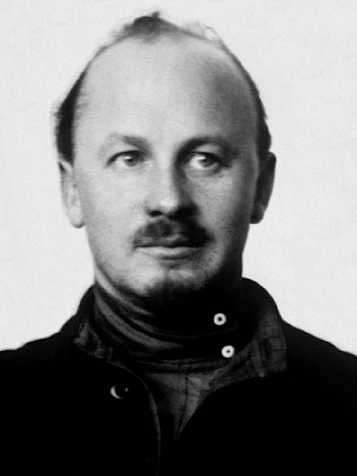Nikolai Bukharin Никола́й Буха́рин | |
|---|---|
 | |
| Born | 9 October 1888 Moscow, Russian Empire |
| Died | 15 March 1938 Moscow, RSFSR, Soviet Union |
| Cause of death | Execution |
| Nationality | Russian |
| Political orientation | Trotskyist |
Nikolai Ivanovich Bukharin (9 October 1888 – 15 March 1938) was a Russian revolutionary and communist politician. After the October Revolution, he initially became a member of a left-communist opposition group with Preobrazhensky that supported Trotsky over Lenin. During the New Economic Policy, he became a right-opportunist and supported the bourgeoisie[1] and kulaks. He formed an anti-party bloc with Alexei Rykov and Mikhail Tomsky.[2] In early 1929, Bukharin confessed to Jules Humbert-Droz, a Swiss Social-Democrat and a friend, that the bloc was forced to resort to terrorism in order to remove Stalin for the lack of public or Party support.[3]
Political career
Revolution
In 1918, Bukharin planned to arrest Lenin, Stalin, and Sverdlov and create a new government of SRs and left communists.[4]
1930s
Bukharin was the chief editor of the government newspaper Izvestiya during the early 1930s. He met with the Menshevik Nikolayevsky in Paris to buy some manuscripts of Marx and Engels and admitted that he saw Stalin as "not a man, a devil."[4]
Political positions
Bukharin believed the peasants were aligned with the bourgeoisie and supported the imperialist World War.[5] He prioritized light industry over heavy industry.[4]
Collectivization
Bukharin believed that collectivization was not possible at the planned rate and that middle and poor peasants did not want to collectivize.[6] After collectivization was completed, he wanted to reverse it.[4]
Elections
Bukharin wanted to create another political party composed of intellectuals to run against the CPSU in elections. He also advocated for other opposition parties including nationalist parties.[4]
Execution
Bukharin was executed in 1937 after the Moscow Trials revealed that he had joined an anti-Soviet bloc with Leon Trotsky and Grigory Zinoviev.[7]
References
- ↑ Joseph Stalin (1939). History of the Communist Party of the Soviet Union (Bolsheviks): 'The Bolshevik Party in the Period of Transition to the Peaceful Work of Economic Restoration'. [MIA]
- ↑ Joseph Stalin (1939). History of the Communist Party of the Soviet Union (Bolsheviks): 'The Bolshevik Party in the Struggle for the Socialist Industrialization of the Country'. [MIA]
- ↑ Jules Humbert-Droz (1929). Nikolai Bukharin on the Use of Individual Terror Against Stalin: 'Courtesy: Jules Humbert-Droz, ‘De Lénin à Staline, Dix Ans Au Service de L’ Internationale Communiste 1921-31’, A la Baconniére, Neuchâtel, 1971, pp. 379-80. Translated from the French by Vijay Singh'.
- ↑ 4.0 4.1 4.2 4.3 4.4 “During his trial, Bukharin admitted in front of the tribunal that in 1918, after the Brest-Litovsk Treaty, that there was a plan to arrest Lenin, Stalin and Sverdlov, and to form a new government composed of `left-communists' and Social Revolutionaries. But he firmly denied that there was also a plan to execute them.
`Stalin aimed at one party dictatorship and complete centralisation. Bukharin envisaged several parties and even nationalist parties, and stood for the maximum of decentralisation. He was also in favour of vesting authority in the various constituent republics and thought that the more important of these should even control their own foreign relations. By 1936, Bukharin was approaching the social democratic standpoint of the left-wing socialists of the West.'”
Ludo Martens (1996). Another View of Stalin: 'The Great Purge'. - ↑ Joseph Stalin (1939). History of the Communist Party of the Soviet Union (Bolsheviks): 'The Bolshevik Party in the Period of Preparation and Realization of the October Socialist Revolution'. [MIA]
- ↑ Ludo Martens (1996). Another View of Stalin: 'Collectivization' (p. 62). [PDF] Editions EPO. ISBN 9782872620814
- ↑ Joseph Stalin (1939). History of the Communist Party of the Soviet Union (Bolsheviks): 'The Bolshevik Party in the Struggle to Complete the Building of the Socialist Society. Introduction of the New Constitution'. [MIA]